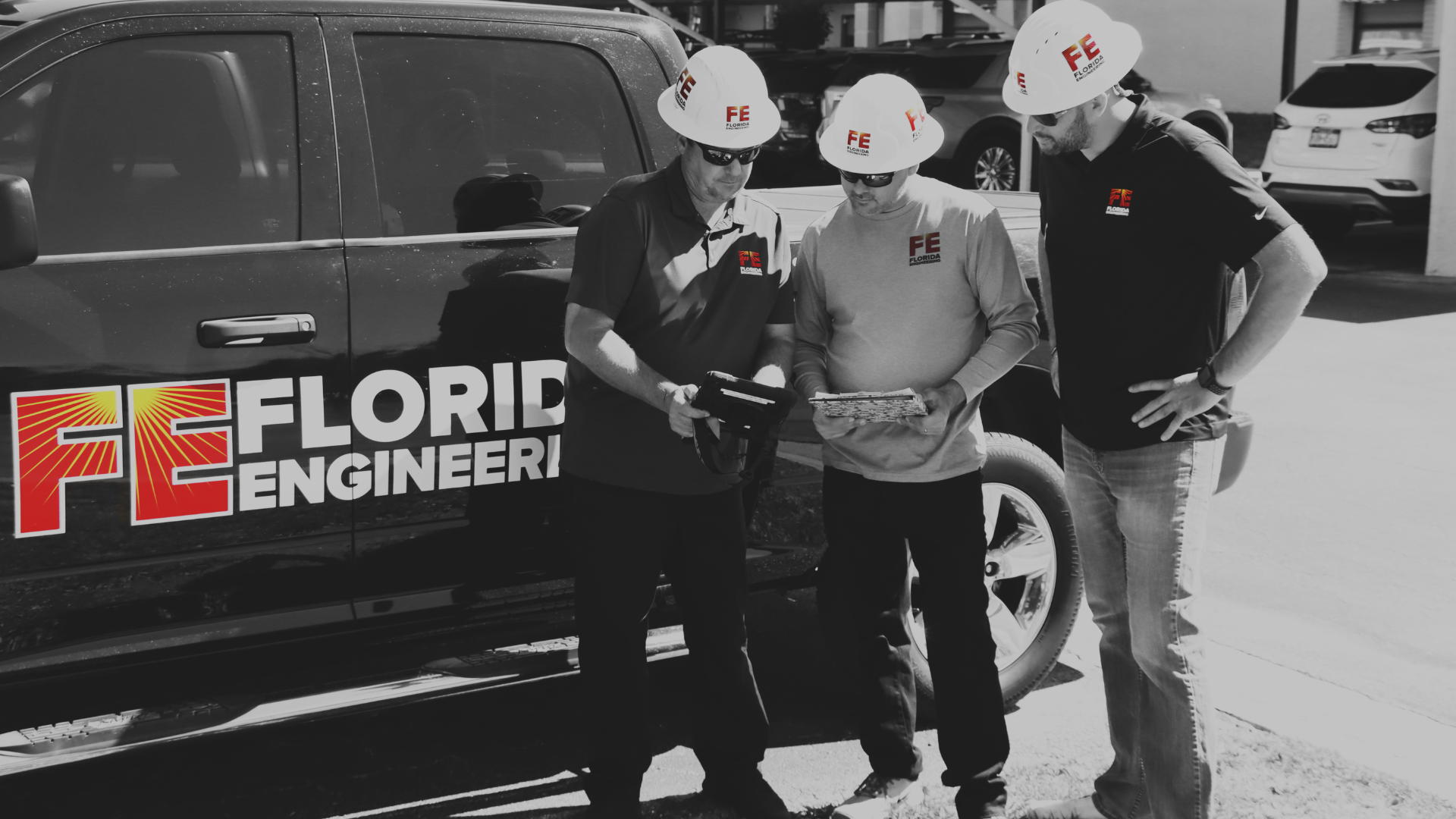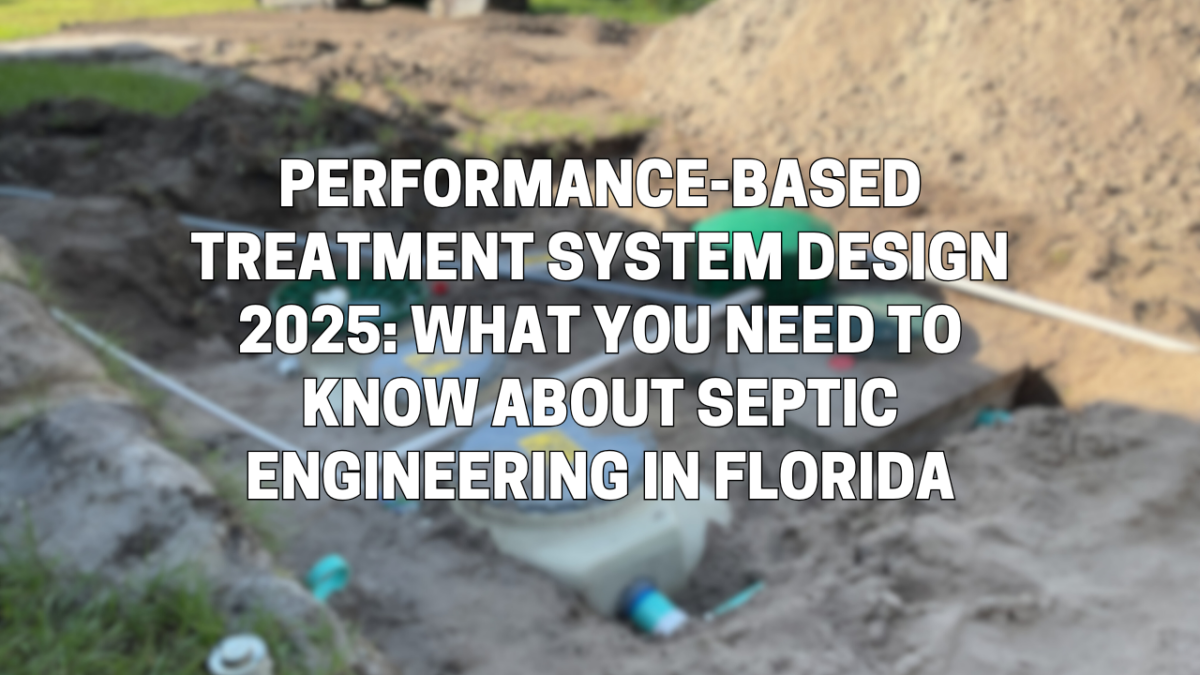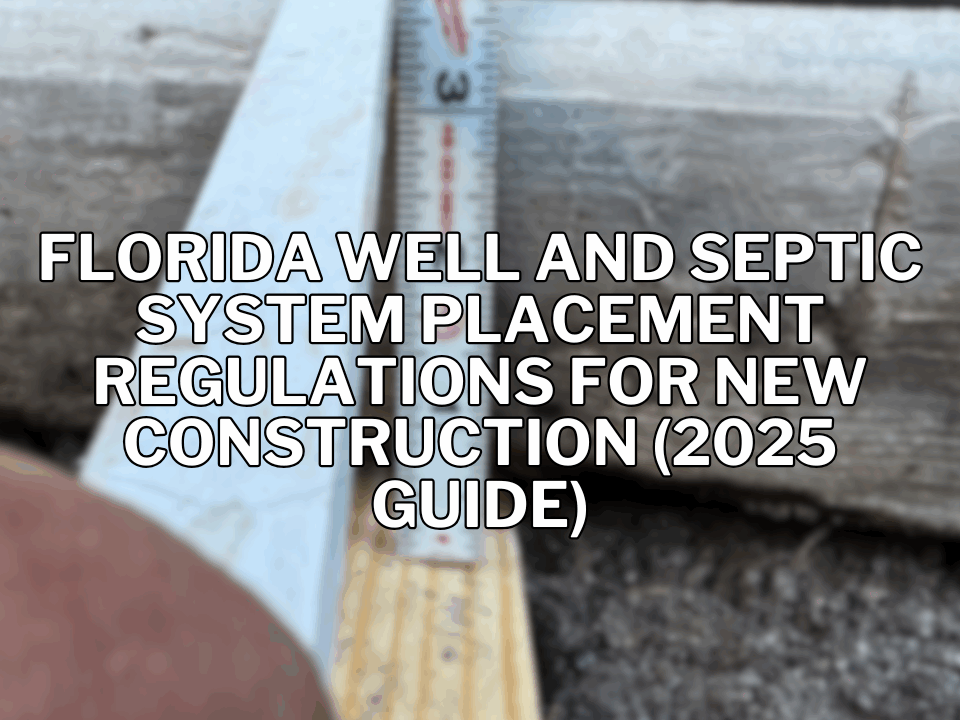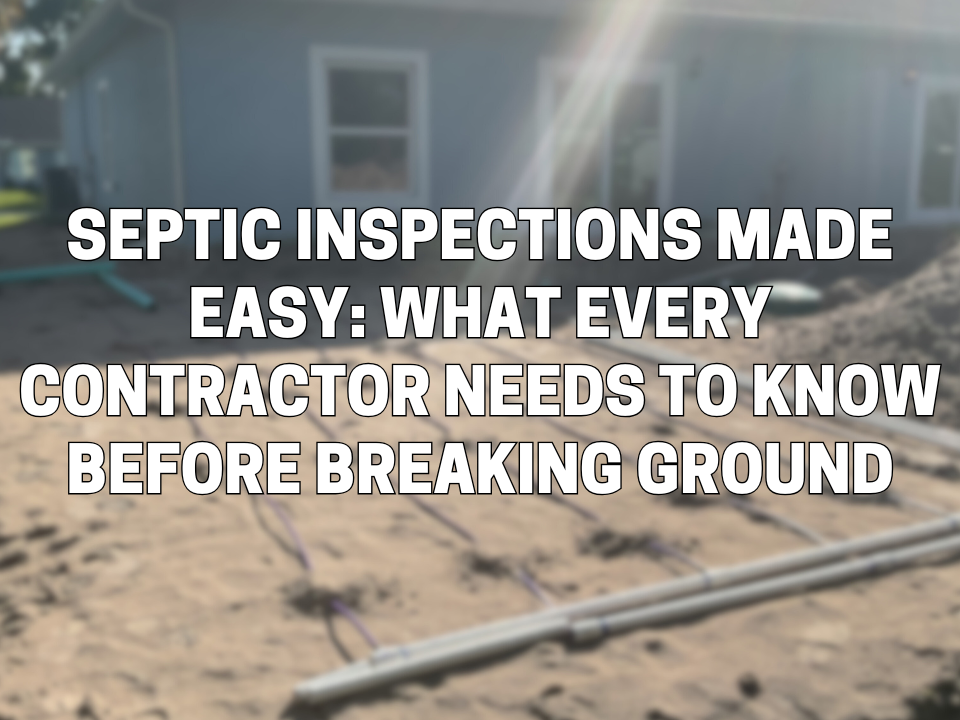Introduction
Septic engineering in Florida plays a vital role in maintaining environmental safety and compliance with state regulations. Whether you’re a contractor, homeowner, or property manager, understanding the different aspects of septic systems—from site plans to advanced treatment systems—can save you time, money, and potential headaches. This article will explore the essential components of septic engineering, answer the most common questions, and provide actionable insights for 2025.
Table of Contents
- What is Septic Engineering?
- Who Needs Septic Site Plans in 2025?
- Common Questions About Cross-Section Drainage Plans
- ATU Design and Certification: What You Should Know
- Performance-Based Treatment System Design Explained
- The Importance of Site and Soil Evaluations
- How to Prepare Construction Drawings & Specifications
- Understanding Private Provider Inspections for Septic Systems
What is Septic Engineering?
Septic engineering involves the design, evaluation, and implementation of systems that treat and dispose of wastewater on-site. In Florida, septic systems must meet strict environmental and regulatory standards due to the state’s unique geology, high water tables, and environmental protection efforts.
Who Needs Septic Site Plans in 2025?
Septic site plans are essential for any new construction or major renovation project involving a septic system. These plans provide detailed information about the location, size, and layout of the septic system, ensuring compliance with Florida Department of Health (DOH) and Department of Environmental Protection (DEP) regulations.
Common Questions About Cross-Section Drainage Plans
What is a cross-section drainage plan?
A detailed drawing that shows the water flow through the septic system, ensuring proper drainage and avoiding contamination.
Why is it important?
Improper drainage in Florida’s unique environment can lead to system failures and environmental hazards.
ATU Design and Certification: What You Should Know
What is an ATU system?
An Aerobic Treatment Unit (ATU) is an advanced system that uses oxygen to treat wastewater more efficiently than traditional septic systems.
Why is certification important?
All Performance-Based Treatment Systems (PBTS) require certification by a licensed engineer to ensure compliance with Florida standards and environmental safety. However, not all ATU systems require engineer certification, as some can be pre-approved for specific applications.
Actionable Tips:
- Work with a Florida-licensed engineer to ensure proper design and compliance.
Performance-Based Treatment System Design Explained
Performance-Based Treatment Systems (PBTS) are customized solutions for properties with unique challenges, such as poor soil conditions or high water tables.
Why is certification so important?
PBTS systems are site-specific and must adhere to strict engineering standards to ensure functionality and environmental protection. Certification guarantees that the system is designed to meet both regulatory and property-specific requirements.
Actionable Tips:
- Partner with a licensed Florida Engineer to certify and design your PBTS system.
- Schedule regular maintenance to ensure compliance and performance.
The Importance of Site and Soil Evaluations
Site and soil evaluations are critical in determining whether a property can support a septic system. Factors such as soil permeability, groundwater depth, and slope are assessed.
Common Questions:
- How long does a site evaluation take?
Typically 1–2 days, depending on the property size. - Can poor soil conditions prevent installation?
Yes, but alternative systems like ATUs or PBTS may offer solutions.
How to Prepare Construction Drawings & Specifications
Construction drawings must include:
- System layout and dimensions
- Material and equipment specifications
- Compliance with DEP/DOH standards
Understanding Private Provider Inspections for Septic Systems
Private provider inspections allow property owners to hire licensed professionals instead of relying on government agencies.
Benefits:
- Faster turnaround times
- Greater flexibility in scheduling
Septic engineering is a critical aspect of property management in Florida, ensuring safety, compliance, and environmental protection. Whether you’re planning a new installation, upgrading an existing system, or scheduling an inspection, understanding the components of septic engineering can help you make informed decisions.
Contact our team of licensed professionals today to schedule your PBTS certification, septic site plan, or private provider inspection.








